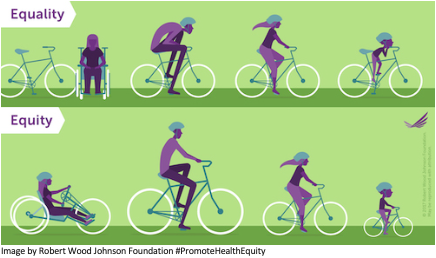Site Search
- resource provided by the Forum Network Knowledgebase.
Search Tip: Search with " " to find exact matches.
Now More than Ever
Don’t miss the premier conference for New Jersey nonprofits and allies, packed with the great insights, tools, and the super-charged networking you’ve come to expect. This full day event will also include...
How can philanthropic efforts go beyond addressing isolated challenges to fund the interconnectedness of social, economic, racial, and environmental disparities?
This webinar will explore how family philanthropy can play a pivotal role in...
Across the country, communities are facing waves of federal immigration enforcement actions featuring unprecedented new tactics, including the deployment of military personnel and other operations that heighten fear, surveillance, and instability. In...
Join us every month to discuss all things policy, including the latest developments at the federal, state and local levels; legislative insights and advocacy opportunities; and to share any other policy or advocacy issues currently on your...
In this final session of GCIR’s anti-authoritarian series, we will examine how front-line organizations and funders are responding in real time to increasingly oppressive state actions, including the militarization of Los Angeles and recent attempt to...
Narratives shape policy, sway elections, and determine whose voices are heard or silenced. Media is not just a communication tool: it is civic infrastructure, as essential to democracy as roads and schools. Yet the systems that shape our shared...
What do the latest trends in family philanthropy tell us about effectiveness and impact?
Join us to dive into select findings from the Trends 2025 report. You will hear from family foundations about how these trends relate to their impact and...
The Newark Philanthropic Liaison led a two-year process to develop a municipal economic empowerment blueprint that brings all sectors together in Newark to support resident’s financial health. The resulting document created a financial empowerment...
One of our longest and most successful public-private partnerships in Newark, the Summer Youth Employment Program empowers youth each year with a job, workforce training, financial literacy, and coaching and mentoring. Thanks to the support of more...
The NPL led a multi-year, cross-sector effort to explore, plan, and execute a guaranteed income pilot in Newark in partnership with Mayors for a Guaranteed Income and the Center for Guaranteed Income Research. On June 17, we hosted a community...
The F. M. Kirby Foundation Summer Internship Program is for rising college sophomores, juniors, and seniors who are interested in exploring a career in philanthropy or nonprofit management. The position requires an in-office time commitment of...

These articles are curated from news sources, philanthropic-focused...
CNJG's special programming, “Race, Racism and Ramifications for Philanthropy” is a multifaceted, multi-...
In response to Hurricane Ida and the devastating impact it has had on many New Jersey communities, CNJG has gathered numerous resources, articles, and information on the philanthropic response. CNJG encourages you to share these with your nonprofit...
The Council of New Jersey Grantmakers joins the Funders’ Committee for Civic Participation’s Funders Census Initiative, the United Philanthropy Forum, and philanthropy-serving organizations around the country in asking our members to commit to...
COVIDRF.png...
From February 26-28, 2023, members of the NLC’s Mayoral Network on Community Safety and Violence Prevention, city representatives and resource guests were welcomed by Mayor Ras J. Baraka in Newark, New Jersey. Attendees saw firsthand the strides made...
On March 9th, 2023, the City of Newark unveiled a Harriet Tubman monument in the newly re-named Harriet Tubman Square. The Newark Philanthropic Liaison played a key role on the monument project team for two years, ensuring that funds were available to...
Newark is one step closer to its highly anticipated Guaranteed Income Pilot Program following the release of a report by the city, the Jain Family Institute and the Economic Security Project outlining findings and recommendations that would put more...
Resources gathered from our colleagues at other philanthropy-serving organizations, state nonprofit associations, and city, state, and federal governments.
Philanthropy Serving Organizations Resources
...
